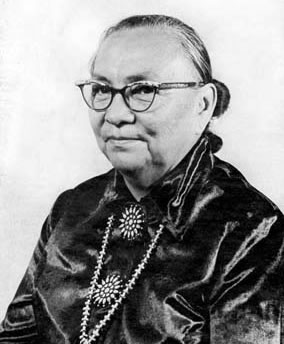Native American Heritage Month, observed every November in the United States, is a time to honor and celebrate the rich and diverse cultures, traditions, and contributions of Native American and Indigenous peoples. It provides an opportunity to recognize the enduring legacies and resilience of the first inhabitants of the Americas.

Annie Dodge Wauneka, a prominent Navajo leader and health advocate, dedicated her life to enhancing the well-being of the Navajo Tribe and combating tuberculosis nationwide. Born in 1910, Wauneka’s early experiences, including surviving an influenza epidemic, fueled her commitment to public health.
After marrying George Wauneka, she joined the Tribal Council in 1951, becoming the second woman elected. Over three terms, she championed the fight against tuberculosis, creating a Navajo-English dictionary for medical terms and conducting radio broadcasts to educate her community on modern healthcare practices.
Wauneka addressed various health issues, advocating for improved care for pregnant women, eye and ear examinations, and combating alcoholism. Until her passing in 1997, she played a pivotal role in improving housing, sanitation, and healthcare practices within the Navajo community.
Recognized for her extraordinary contributions, Wauneka received the Presidential Medal of Freedom in 1963, was named Woman of the Year by Ladies’ Home Journal in 1976, and earned the title “The Legendary Mother of the Navajo Nation” in 1984. Furthermore, her legacy continues to positively impact the lives of the Navajo and the nation as a whole.









